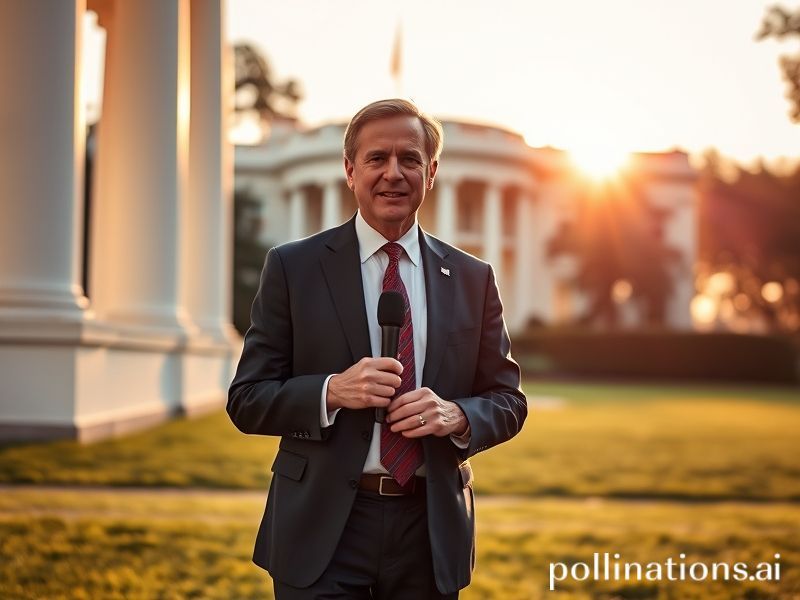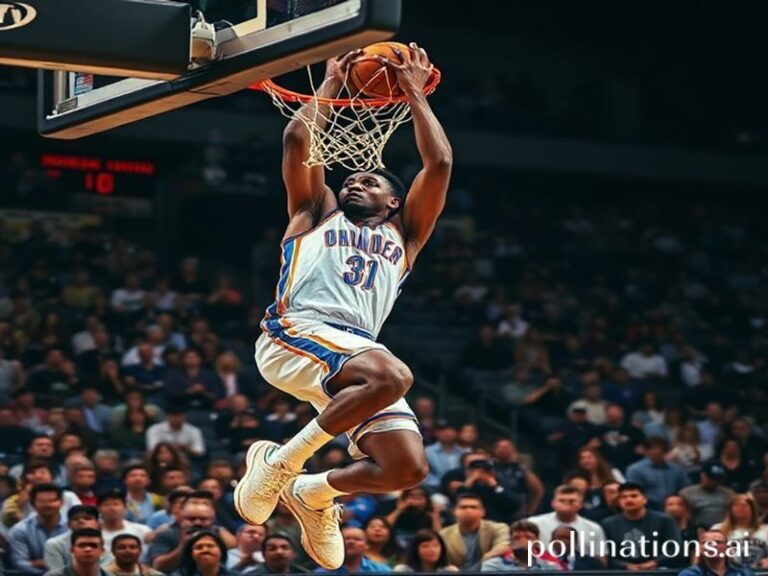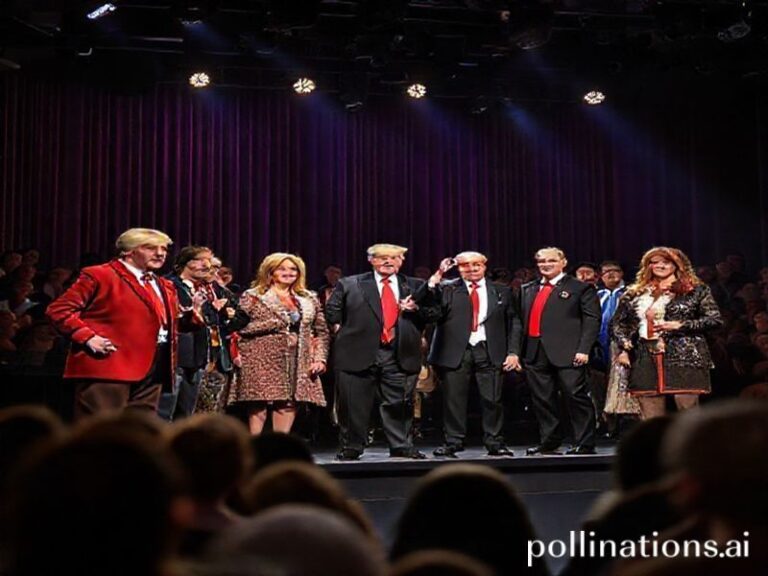Peter Doocy: The World Watches America’s Favorite Press-Room Gladiator
Peter Doocy: The Accidental Diplomat in America’s Theater of the Absurd
GENEVA—In the marble corridors of the Palais des Nations, where interpreters swap apocalyptic climate reports in six languages before lunch, U.S. correspondents are usually filed under “local color.” Yet even here, among diplomats who’ve survived coup attempts and champagne shortages, the name Peter Doocy elicits a half-suppressed grin—the kind you give a toddler who’s just discovered the red button labeled “Do Not Press.”
Doocy, Fox News’ White House piñata-in-residence, has become the closest thing America exports to performance art: a man who flies across oceans to ask the president if he remembers what day it is, then looks authentically surprised when the globe fails to stop spinning. International viewers—accustomed to press briefings that resemble chess or, at worst, polite rugby—tune in for the Pavlovian spectacle: the tilted head, the gotcha question wrapped in earnest Midwestern vowels, the inevitable presidential sigh that translates in every tongue to “not this again.”
To understand Doocy’s global footprint, imagine a United Nations of snark. In Seoul, his clips are subtitled for morning commuters who treat them like K-pop bloopers—comforting proof that even superpowers embarrass themselves on camera. Berlin cab drivers replay his sparring matches while stuck in diesel-scented traffic, cackling at what they call “American Socratic dialogue, but with the attention span of a goldfish.” Meanwhile, in Nairobi’s tech hubs, startup bros meme his sound bites into motivational posters: “Fail faster—Doocy asks the same question six times before breakfast.”
The joke, of course, is that the joke is on everyone else. While foreign ministries draft carefully footnoted demarches about U.S. policy, Doocy reduces the world’s most expensive military empire to a 30-second exchange about ice-cream flavors. Analysts at NATO headquarters used to monitor Russian troop movements; now they clock whether the press corps will bait Jen Psaki into an eye-roll that trends on Turkish Twitter. Call it NATO’s Article 5 of ridicule: an attack on one cognitive synapse is an attack on all.
Still, there’s something almost admirable—Darwinian, perhaps—in Doocy’s commitment to the bit. In an era when strongmen choreograph press pools like synchronized swimming, he insists on cannonballing into the pool wearing lead boots. Italian journalists, who’ve spent two decades perfecting the theatrical shrug, watch him the way veteran tenors regard a tone-deaf busker: horrified, yet mesmerized by the audacity. Even the French, world champions of intellectual disdain, have granted him a rare accolade: “un clown volontaire,” a volunteer clown, the sort who’d bring his own custard pie to a Michelin-starred food fight.
The broader significance? Doocy is the canary in America’s coal mine of attention economics. While Beijing builds islands and Brussels drafts 400-page trade compacts, Washington’s policy announcements now live or die by whether they survive a 15-second clip riding the chyron beneath his furrowed brow. Foreign delegations no longer lobby think tanks; they lobby cable-news bookers, calculating the optimal minute to parachute into the briefing room before Doocy steers the conversation to Hunter Biden’s laptop or the nuclear codes he may or may not have confused with his DoorDash password.
And so the planet watches, half-horrified, half-hypnotized, as the republic that once birthed the Marshall Plan now projects power through a journalist whose superpower is refusing to Google basic facts. It’s reality TV masquerading as reality, a feedback loop exported worldwide like subprime mortgages or deep-fried Twinkies. The takeaway for international audiences: if American hegemony ends, it won’t be with a bang or a whimper, but with a follow-up question shouted over the whir of Marine One’s rotor blades.
In the end, Doocy matters not because he uncovers truth, but because he confirms what the world already suspects—that the empire’s biggest vulnerability isn’t a missile gap, but a credibility gap wearing a press badge and a perplexed smile. Somewhere in a Geneva café, a diplomat stubs out a Gauloise and mutters, “At least the Romans had bread and circuses. We get circling questions and cable-news bread crumbs.” He pays the tab in dollars, still the world’s reserve currency, still good for now. Outside, the lake lies calm, indifferent to the circus, awaiting the next shipwrecked superpower with the patience of deep water.







